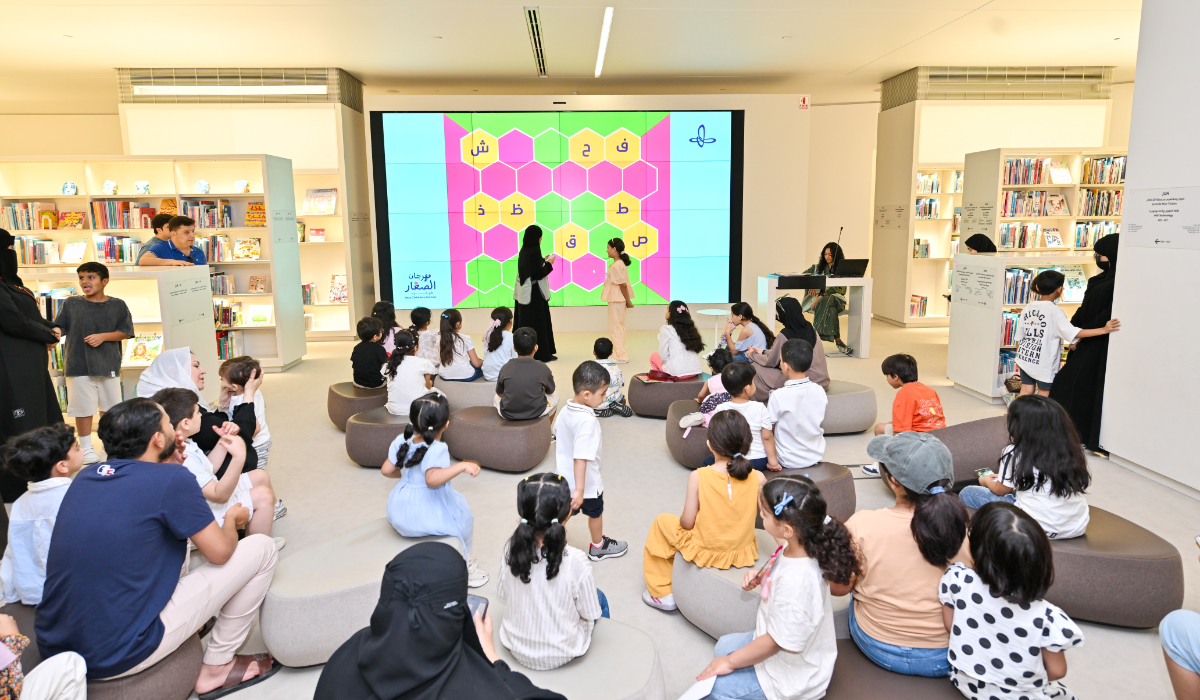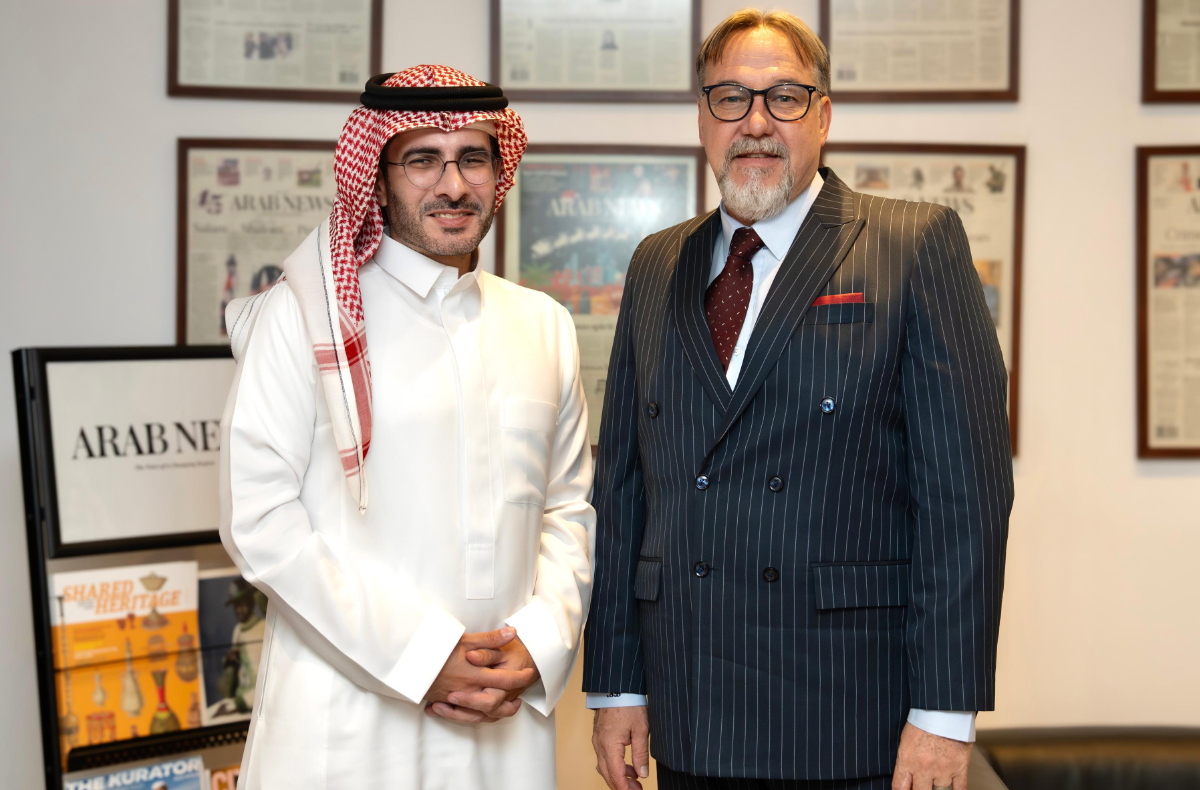RIYADH: Everyone’s favorite space opera is 42 years old this month. From the first premiere of “Star Wars: Episode IV — A New Hope” on May 25, 1977, to the imminent release of “Star Wars: Episode IX — The Rise of Skywalker” this December, rarely has a film franchise been so successful for so long.
In fact, “successful” might be an understatement. “Star Wars: A New Hope” is the second-highest-grossing film of all time in Canada and the US (even after adjusting for inflation), and the franchise as a whole is second only to that of the Marvel Cinematic Universe in terms of financial gross.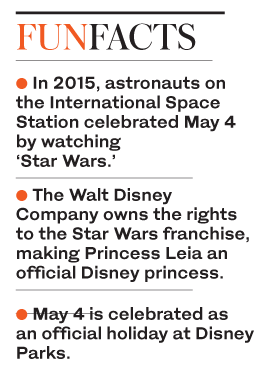
The impact of the Star Wars franchise on pop culture is incomparable. Many of the characters from the series have become synonymous with wise, elderly mentors, such as Yoda or Obi-Wan Kenobi. The reveal of primary antagonist Darth Vader as protagonist Luke Skywalker’s father (and by extension, Leia Organa’s as well) is an iconic moment in film history. And the whirlwind, albeit unconventional, romance of roguish Han Solo and the stately Princess Leia is cited as one of the most memorable in Hollywood.
May 4 is celebrated the world over as Star Wars Day. “May the Fourth be with you” was first coined by Star Wars fans after the release of “A New Hope.” The Force is the name of the cosmic power that gives the Jedi and Sith their superhuman abilities, and a common phrase that Jedi bid each other farewell with is “May the Force be with you.” The similarity between “Force” and “Fourth” prompted fans to adopt the day as their unofficial holiday, and eventually officials caught on, making May 4 a holiday for Star Wars fans worldwide.
The Star Wars franchise has had a long-standing relationship with the MENA region. Shots of Luke Skywalker’s home on the desert planet of Tatooine were taken at the Hotel Sidi Driss in Matmata, Tunisia, while the salt lake of Tunisia’s Chott El-Djerid was used as a location for the moisture farm of Luke’s aunt and uncle.
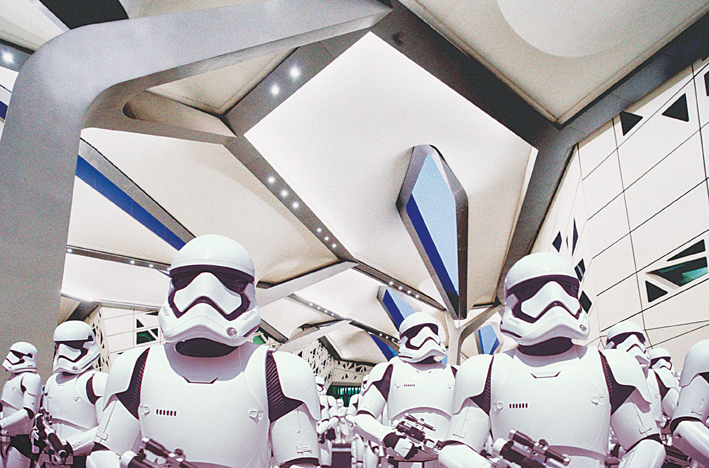
How about an episode set in the King Abdullah Petroleum Studies and Research Center in Riyadh? (Supplied photo)
The Abu Dhabi section of the Rub’ Al-Khali desert was used to shoot several scenes in 2014 for “Star Wars: Episode VII — The Force Awakens.” Director J.J. Abrams famously said of his experience: “Filming in Abu Dhabi was an incredible thing. Star Wars is a Western and a fairy tale ... shooting in Abu Dhabi was just that!”
The moon of Jedha, shot in the rocky desert of Jordan, is another good example. Featured in 2016’s “Rogue One: A Star Wars Story,” the moon’s holy city was inspired by holy cities such as Makkah and Jerusalem, according to an interview with director Gareth Edwards in “Entertainment Weekly.” The architecture and city features have a distinctly Ottoman feel as well.
There is no doubt that the Middle East has already served the franchise well as a filming location. So why wouldn’t the next logical step be to consider Saudi Arabia?
The Kingdom has plenty of locations that would suit the rough-and-tumble desert scavenger aesthetic the series is so fond of, along with the high-tech, futuristic and luxurious settings needed for space stations and spaceships.
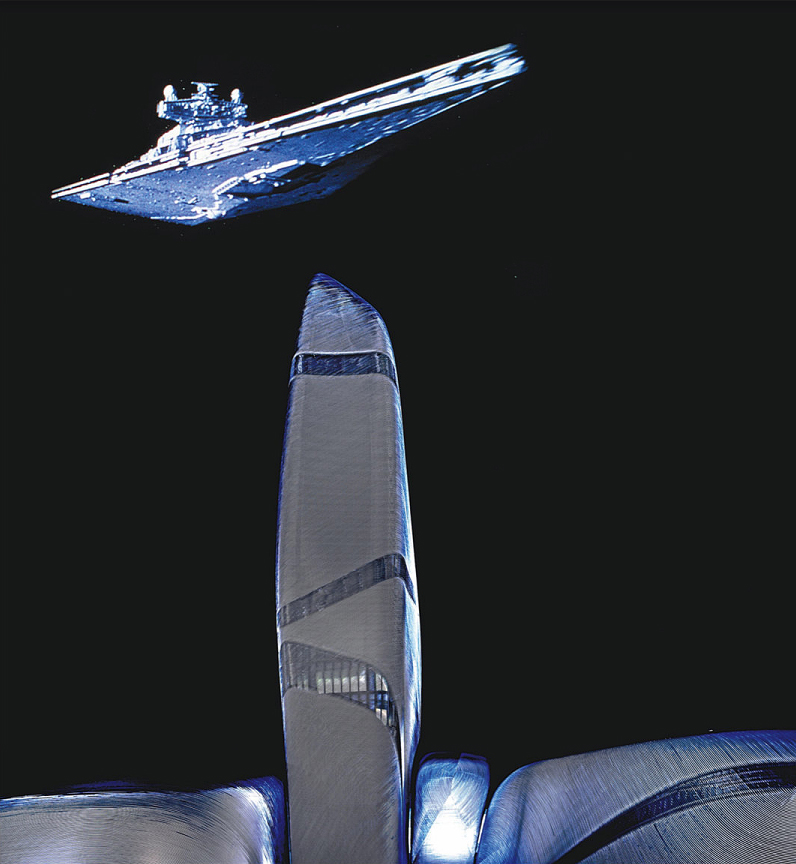
Saudi filmmaker and cinematographer Thamer Alfuraiji, known for his work on films such as “Rooh (Soul)” and “Refuge,” said that the Kingdom could potentially be a great location for a Star Wars film, as there are so many possibilities for filming locations.
“And, of course, the boost to the economy, as well as the endless possibilities for Saudi filmmakers and actors, can’t hurt,” said Alfuraiji. “And the fact that the Saudi Film Council is working so hard to support the endeavors of those working in the film industry means that plenty of opportunities could arise from something as huge as Star Wars coming to film in Saudi Arabia. And it wouldn’t just be actors and directors that could benefit: Production support companies could also stand to gain a lot.”
Take, for example, the city of Al-Ula. Its famous Elephant Rock could also call to mind the giant AT-AT vehicles used by the Imperial Army in battle. The desert itself is filled with massive, hulking rock formations that could easily fit in with any of the previously used filming locations.
In a more futuristic sense, the King Abdullah Petroleum Studies and Research Center in Riyadh would make a brilliant location for a space station or even an unusually large spaceship. The huge, futuristic building was designed by the late Zaha Hadid, and features a super-spacey aesthetic with high ceilings, lots of metal and glass, and a gleaming white interior, where you can hear the echoes of footsteps from miles away. Suitably austere, it would make a great location for an Imperial Army facility.
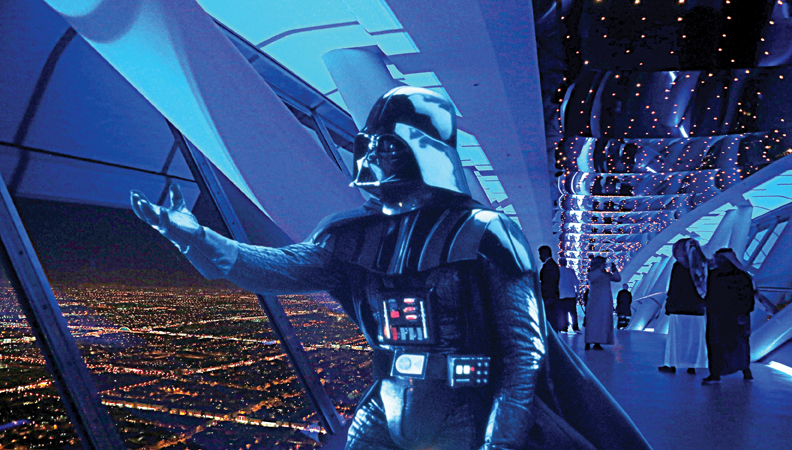
Darth Vader at the Kingdom Tower, Riyadh. (Getty Images)
The observation deck of the Al- Faisaliah Tower and the Sky Bridge at the top of the Kingdom Tower in Riyadh would be great places for an epic Jedi-on-Sith showdown. High above the flashing lights of the city, scraping the clouds, with one misstep meaning you could plunge to a terrible death, a survival-of-the-fittest-type battle would make for a thrilling one to watch.
Aspiring Saudi actress Arwa told Arab News that being able to participate in a Star Wars film, even just as an extra, would be a dream come true.
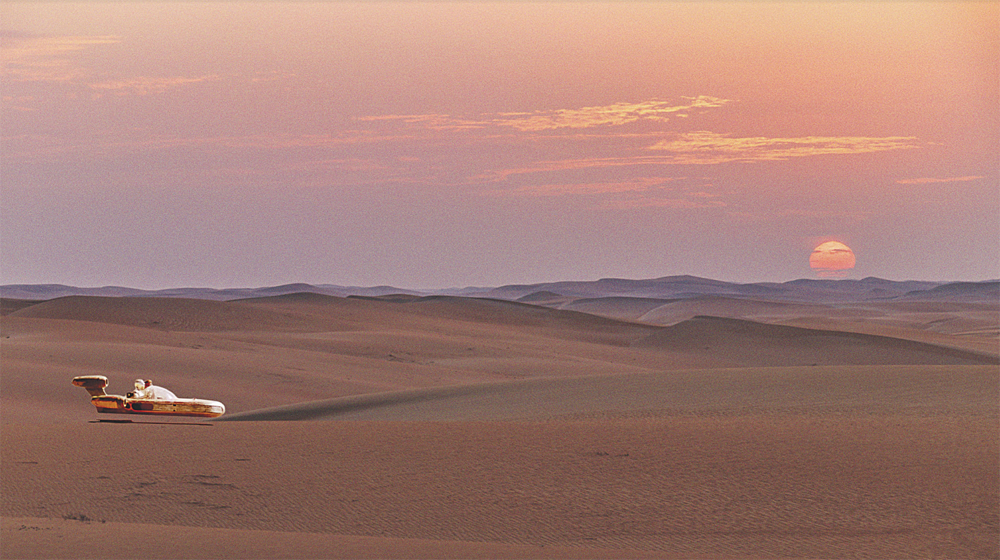
“I would just die. Imagine being able to say you worked on a Star Wars movie, and in your own country, too. I could see it. And I want it so bad,” she said.
Dec. 20 will also see the worldwide release of the final installment in the Star Wars sequel trilogy and the ninth film in the main franchise, “The Rise of Skywalker.” It is also worth mentioning that this will be the first Star Wars film to be shown in public in Saudi Arabia after the country opened up its first cinemas in 35 years last year, leaving many fans excited about the prospect.
Since the trailer came out on April 12, Saudi fans have been taking to social media to express how excited they are to experience the film in their own hometowns.
One fan using the name “Adam Skywalker” tweeted: “I’m so happy I never have to travel to see a Star Wars film in the cinema again!”










